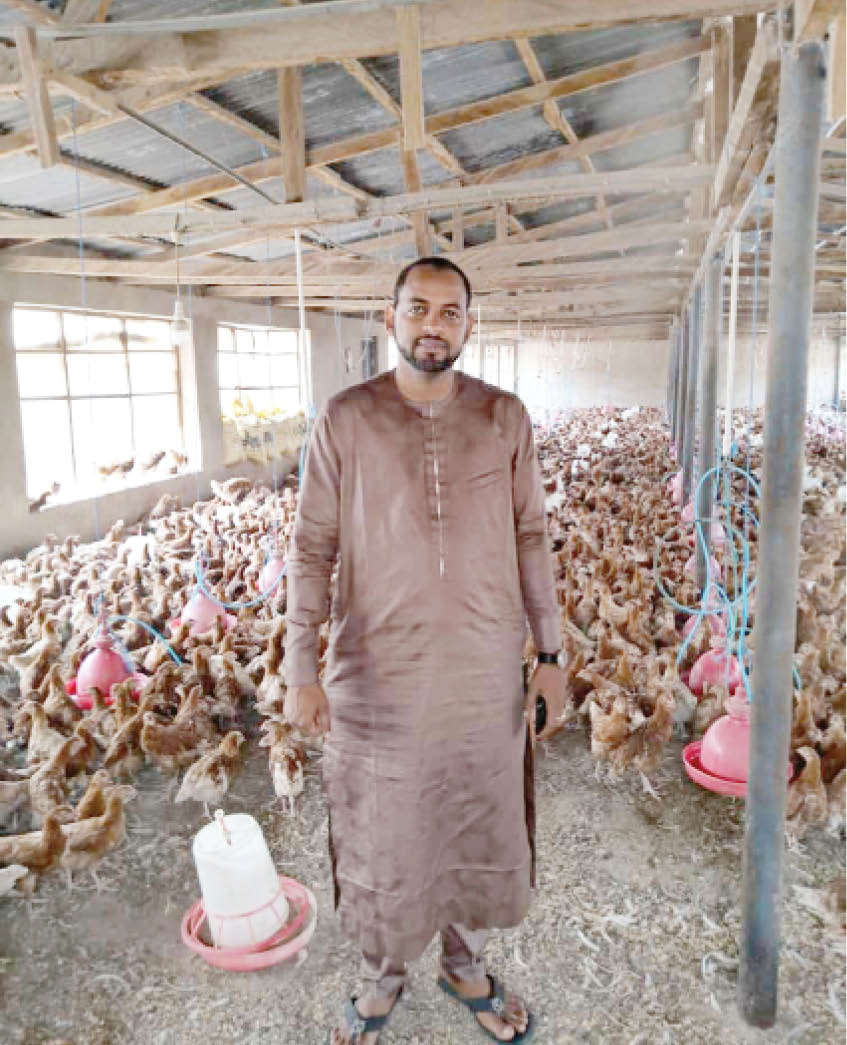‘How I grew my poultry farm to 120,000 birds’
The beginning was very bitter for him, but he calls it a ‘learning curve,’ which has strengthened his knowledge and decision to focus on specific aspects of the business

Abubakar Usman Kibiya
Meet Abubakar Usman Kibiya, a young poultry farmer in his 30s, who defied every odd to stick to what he called the ‘volatile business’ of poultry farming.
With the help of a friend and through trials and error, the young man remains resolute to succeed in poultry business despite huge losses he suffered in the beginning. Today, the farm he started about 15 years ago has 130,000 birds.
- Ex-Triumph newspaper staff, Mustapha Garba, becomes first Dan Darman Sokoto
- Yinka Odumakin: An Ode to the Fallen One
The beginning was very bitter for him, but he calls it a ‘learning curve,’ which has strengthened his knowledge and decision to focus on specific aspects of the business.
“For a person that doesn’t know anything about poultry, what you hear is: ‘You are on your own’ because there is a wild disease that can just come and wipe them out. There are so many fears.
“But when we started, it was going well. Yes, there is mortality. For instance, you may put like 30,000 birds and 200 can die. My friend looked at me and said it was normal to expect mortality till the end of your production. So, at the end of the day, it is all about calculation. You would want the birds to die earlier before eating your feed.
“That was my experience, but that fear went out of me. I started with 7,000 birds. My first setback was when I put 12,000. For me, the breeds were very bad.
“It is a learning process, so you need to know what you are buying and who you are buying from. Some birds are stunted in nature, such that they can eat up your feed and would never grow.
“After the setback, I came back to 3,000, but thank God that in my farm today, I have about 120,000 birds. There are categories of birds – POL, broilers, layers. So it is a very volatile business,” he said.
The young man said the risk involved in poultry farming should not discourage potentials investors.
Asked how he deals with the cost of feeds and whether he produces his own, the farmer said the attempt to produce his feed did not work well. “I noticed I spent more money trying to produce feed. And lots of times I didn’t get it right.
“Last year, I was buying feeds at N130 per kg, but right now, it is more than N200 per kg. It is one of the major problems we have. It is either you get more money to put into the feed or you give them what you have; and honestly, you won’t get the desired results,” he explained.
On the availability of feeds, he said most of the companies were owned by private organisations.
“You need money to get these things. And birds will not wait for you; they are living things. When you apply for loan, while waiting for it to mature, your birds are hungry and may eventually die. This is one of the major problems we have in poultry business right now.
“I feel that government needs to be involved in some of these things. When I had about 5,000 birds, I went to many of these companies, asking them to give me feeds and I would pay later, but they refused, saying they also needed money to produce. And they are not getting money from the Bank of Industry or the Bank of Agriculture as they want, according to them.
“Government needs to be involved so that we can have better production environment,’’ he said.
